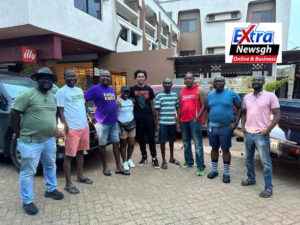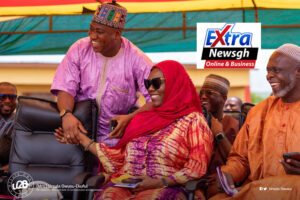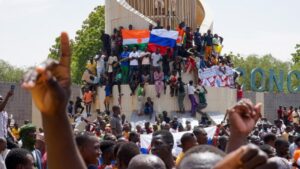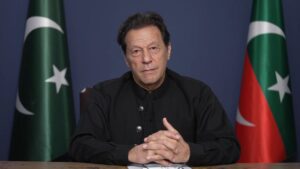
In 1981, the Black Stars of Ghana launched a campaign to qualify for the 13th edition Africa Cup of Nations tournament to be staged in Libya. The Stars were then the most successful nation in the 25-year history of the competition: they had won three titles – first at home in 1963, defending it away in Tunisia two years later, and winning it again 12 years after that back at home. Aside from this, they had finished runners-up on two occasions – 1968 and 1970.
Except for the home victory in 1978, the 1970s had been a largely underwhelming decade for the Black Stars. After placing second in the 1970 edition held in Sudan, they failed to qualify for three consecutive tournaments 1972, 1974 and 1976. The 1980 edition, held in Nigeria, had ended in humiliation: as defending champions, they were swept out in the Group Stage.
Libya 1982 was a chance at redemption for the team, and the football authorities did not want to waste it. Measures were put in place: tried and tested expertise was brought back in the name of the legendary coach Charles Kumi ‘CK’ Gyamfi, who had won the country’s first two titles in 63’ and 65’. Gyamfi was lured back into the job from his lucrative contract at Ghanaian topflight side GIHOC Stars to head the Black Stars’ technical bench. And that wasn’t all: the 52-year-old was even sponsored on an educational trip to Brazil so he would have all the skills and no excuse at all to recapture Ghana’s place atop the African football chain.
Assisting Gyamfi were his younger colleagues; Emmanuel Kwasi ‘E.K’ Afranie – in charge of fitness – and Fred Osam Doudu, who had coached the country to the 1978 triumph, in charge of tactics.
The Stars went into the qualifiers all buoyant – and a tad lucky – narrowly seeing off the two Congos – Congo Brazzaville 2-1 on aggregate and DR Congo (then known as Zaire) 4-3 on aggregate to pick up a ticket as one of eight nations that were to fight for the Africa Unity Trophy in Libya.
The dream was on.
Or was it?
The Ghana government, then helmed by President Hilla Limann – in power since 1979 – decided to boycott participation in the tournament due to strained diplomatic relations with the hosts, whose leader Muammar Gaddafi was as controversial as he was polarizing.
Operation Libya was thus shut down, handing a heavy setback to Ghana’s football ambitions.
In an interview with Kwasi Appiah, who was part of the team but could not play a role due to knee injury and now coach of Black the stars, he said “Every football player or fan was disappointed after struggling to qualify. “
Despite the disappointment expressed by football stakeholders, Limann was emphatic: he wanted Ghana to play no part in the tournament, to stay away from any association with the Libyans, but destiny had other plans.
Indeed, Limann himself did not last long enough in power to see his decision enforced.
On December 31, 1981, his government was overthrown.
One man – Flight Lieutenant Jerry John Rawlings – had pulled off a smooth second-coming. In June 1979, the young and charismatic Rawlings, a relative junior in Ghana’s air force, had shocked the nation with a coup that overthrew a military government that had been in power since 1972. After a tension-filled three months in power, Rawlings handed over to Limann, whose People’s National Party had won the General Elections.
Two years down the line, however, the radical, no-nonsense Rawlings, who had been keeping close tabs on Limann from the side-lines, unimpressed with the standard of governance, decided enough was enough. The democracy thing wasn’t helping, and so he decided to take matters into his own hands.
Ghanaians heard the booming voice of this energetic, light-skinned military firebrand over the Ghana Broadcasting Corporation radio, announcing a military takeover – at the time Ghana’s fourth since independence.
Rawlings regained the reins of government with a sense of ease and nonchalance that had never been seen in Ghana’s history, notoriously refusing to call his unconstitutional seizure of power as a coup but rather a ‘Holy War’ and a ‘Revolution’. He formed a new government with his crew and christened it the Provisional National Defence Council – PNDC.
‘Provisional’? Not quite: the military junta would be in power for the next 11 years.
More crucially, in the wake of the political shake-up, Rawlings, an admirer of Gaddafi, immediately reversed Limman’s Libya boycott, ordering the Black Stars to go and compete.
“We are going to Libya to prove to the world that Ghanaians can take decisions for themselves,” said Zaya Yeebo, the PNDC’s Secretary for Youth and Sports.
“Rawlings actually brought smiles on our faces when he promised us participation. ” Kwasi Appiah
It was a subtle dig at Limann, whom the Rawlings administration saw as a puppet of the United States of America, the world’s superpower whose well-documented grudge with Libya had inspired allies and foes alike.
Unlike his predecessor, Rawlings immediately established cordial, even cosy relations with the Libyans. El Mandi Aboelkhirt, a member of the organizing committee for Libya 82’, travelled to Ghana on February 12, 1982 to extend a formal invitation to Ghana and also thank Rawlings for his decision to rescind the boycott. A week later, Rawlings sent a 21-member contingent to Tripoli, Libya’s capital, to assure Gaddafi of Ghana’s support in the fight against ‘imperialism and racism’.
“We in Ghana regard you as an example to be emulated in being brave and strong in facing Africa’s enemies,” Rawlings wrote in a statement. “We will stand together against all these enemies and we will work together to develop our relations in various fields because consolidation of relations between Ghanaians and Libyans would give Africa a solid force.”
Colonel Muammar Gaddafi had risen to power through a coup d’etat on September 1, 1969, wrestling control from the country’s Senussi Muslim monarchy headed by King Idris: an authoritative order which had grown unpopular on accusations that it had personalized the new-found oil wealth.
This watershed takeover became known as the Al Fateh Revolution.
Rawlings had been inspired by Gaddafi and his ideals, also shared by other revolutionaries such as Fidel Castro (Cuba), Desi Bouterse (Suriname) and Daniel Ortega (Nicaragua).
The values entailed holding power to account by taking over in the name of giving it back to the people, as well as the opposition to Western (mainly U.S) imperialism.
After Rawlings’ second ascent to power in December 1981, many whispered rumours held that Gaddafi, who was known to fund other revolutions, helped Rawlings out with funds and equipment to usurp Limann. Thus Rawlings’ rather hasty move to align the September and December revolutions of Libya and Ghana in 1982 came as no surprise.
Apart from Rawlings overturning the boycott because of a desire to establish and maintain an affiliation with his ‘comrade’ Gaddafi, the whole exercise was also a strategic means of getting Ghanaians to buy into the theme of patriotism and national consciousness that he had sold his revolution by.
The military leader sought success by using football, the country’s biggest passion, and the Black Stars, easily the country’s most popular brand, as tools to justify and enhance his revolution.
A writer in the Ghanaian Times, Eric Yankah, explained this dynamic best. “Our participation would create and reinforce a ‘togetherness’, evoke feelings of patriotism and demonstrate to all peoples (at home and abroad) how happy and carefree life would be under the revolution,” he wrote.
“In this way, football, the most popular sporting activity would become one of the effective means of linking members of the country with politics, the revolution and of course, with their own aspirations.”
Indeed, the actors of the revolution themselves didn’t hide this intention. Zaya Yeebo said that the success of the Black Stars in Libya would “mean so much” to the success of the revolution. “The Black Stars are therefore the most important group of people in the promotion of the sport at the moment. Our major preoccupation is to get them prepared,” he claimed.
The Daily Graphic even referred to the national team as “soccer ambassadors of the revolution.”
Meanwhile, football stakeholders didn’t care about the political underpinnings. They were delighted with the news.
The Daily Graphic called Rawlings’ Libya U-turn as “the best news to come the way of sportsmen since the launching of the revolution.”
“One shudders to think of the damaging and demoralizing consequences that Ghana soccer would have suffered if the original decision by the Limann administration to boycott the finals had been allowed to stay,” it said.
It was January 1982, and the tournament was scheduled for March. The team had to be revived from its inactivity. Funds needed to be raised to fuel Operation Libya.
Things were sparked into motion amid a frantic, crazy whirl of preparations. On January 13, 51 days to the tournament, the Black Stars were immediately reconstituted, camped at the Kaneshie Sports Complex and later at the then serene, secluded Mendskrom, around the McCarthy Hills area outside of Accra.
Zaya Yeebo immediately got to work, calling on civil society and corporate bodies to donate funds towards financing the team’s Libya ambition. Support came in thick and fast – sums of money, equipment, the whole nine yards.
Interestingly, a group known as the Ghana-Libya Friendship Association were among the organizations that donated money to the team – with theirs being a specific sum of 1,500 cedis. Another group named the Ghana-Libya-Iran Friendship Association forked out a 1000 cedis.
At a point, the PNDC ordered about 11 friendlies to be played amongst clubs across the country, purposefully to harvest proceeds that would aid the Stars’ campaign. Among these games were two of the nation’s biggest local derbies – Asante Kotoko v Cornerstone in Kumasi and Hearts of Oak v Great Olympics in Accra, both of which fetched close to 200,000 cedis. Over in the Western Regional derby, Hasaacas and Eleven Wise raised close to 35,000 cedis.
The story of Ghana’s journey to Libya was characterized by a strong sense of serendipity, as you may have noticed by now.
All the pieces were coming together, against the odds.
During the qualifiers, the team needed unfancied, hitherto labelled ‘impossible’ away wins to outwit both Congo Brazaville and Zaire after home draws. The team had also needed a Coup d’etat to even get the green light to participate in the tournament.
And, when under the pressure of time inadequacy, the team was wondering how they would find top opponents to play in preparation for the tournament, there was the Supreme Council of Sports in Africa (SCSA)’s Zone Three Football competition to save them.
Organized from February 14-21, this competition was the football edition – the other sports being boxing and cycling – of a wider sports games scheme put together by the SCSA. Eight West African nations were to compete for a trophy named after Benin President Mathieu Kerekou: Hosts Benin was being joined by Nigeria, Togo, Ivory Coast, Upper Volta (now Burkina Faso), Niger and Sierra Leone. Ghana had initially planned to send its Under 23 team to this tournament, but with the Libya boycott U-turn necessitating the need for immediate preparatory games, the Black Stars asked to represent the nation.
Before departing for Benin, the national team had played friendlies against a Ghana Commercial Bank team as well as Accra Great Olympics, putting up performances that the press considered ‘unimpressive’.
It was to be expected.
The team had been put together hurriedly and things were yet to take form. But the fear was that the time might not be enough for the team to fully jell and grow ahead of Libya.
In Benin, the team continued to struggle to find their rhythm. Their opening fixture against the Ivory Coast was an astonishing 5-5 draw, a result Daily Graphic sportswriter Joe Aggrey, who travelled to cover the tournament, described as ‘basketball score’.
“This might sound incredible, but it is very true,” Aggrey wrote. “For the Black Stars, it was a nightmarish experience. Indeed, they escaped defeat by the skin of their teeth.”
Yet another draw followed. And it was similarly high-scoring: 2-2, against Niger. The team was scoring, but it was conceding heavily too.
Progress wasn’t being made.
Source:Ghanaweb





